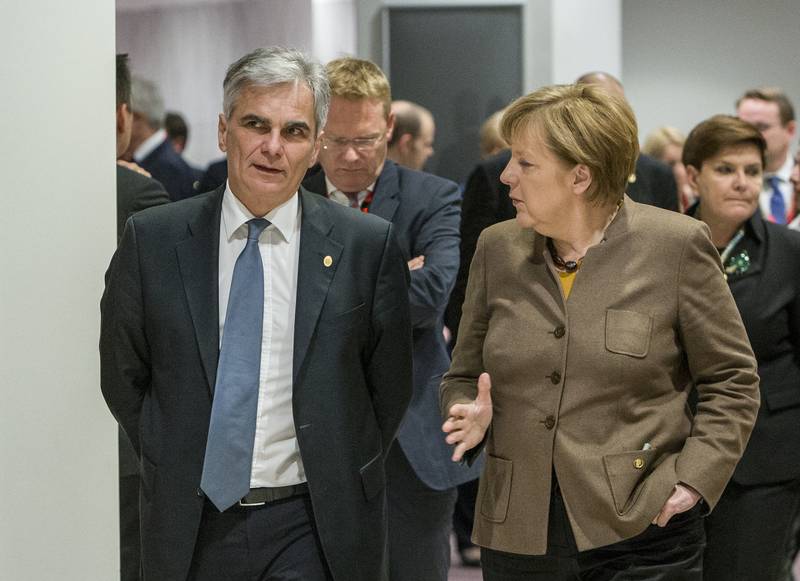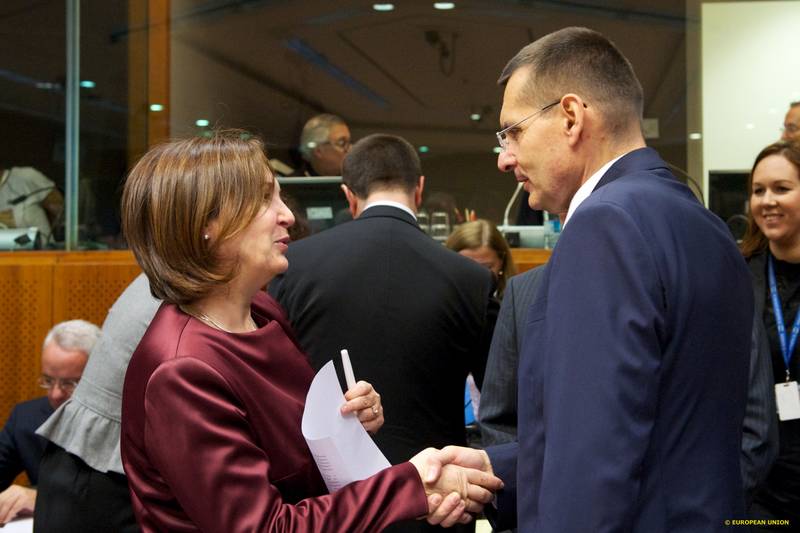Remember Schengen and Wait for the CVM reports
Ralitsa Kovacheva, December 15, 2011
 18 September 2011: "I think the entry into Schengen is a national priority for both the government and the Bulgarian citizens." (24 Hours daily)
18 September 2011: "I think the entry into Schengen is a national priority for both the government and the Bulgarian citizens." (24 Hours daily)
12 December 2011: "It is important for us a political decision to be adopted for the first stage of abolishing of borders - sea and air borders. [...] I hope that a decision on the issue of abolishing the land borders will be also reached next year, but we should not be too persistent on this issue because of a potential migration pressure." (Bulgarian National Radio)
Both statements belong to Bulgaria's Deputy Prime Minister and Minister for the Interior Tsvetan Tsvetanov. The first one was made before the Justice and Home Affairs Council meeting on 22 September, when the Netherlands and Finland opposed the accession of Bulgaria and Romania to Schengen and the second one - after the Council meeting on 12 December, when the situation was not significantly different.
However, the Bulgarian position seems to have changed. How and why? Let's see:
On the eve of the Council on 22 September, when it became clear that the Netherlands would block the accession of Bulgaria and Romania in the Schengen area, the Bulgarian Ministry of Foreign Affairs warned that unless on 22 September a decision was taken, "that meets the interests of all in Europe and especially the best interests of the Bulgarian citizens," Bulgaria "shall need to carefully consider our entire policy from now on regarding the support we give to the reform of the European legislation on Schengen".
Despite the threats and the positions of the European Parliament and the European Commission, on 22 September the Netherlands and Finland refused to support even the compromise proposal of the Polish Presidency for a phased entry of Bulgaria and Romania in Schengen – by abolishing the checks at internal sea and air borders first, and then at a second stage – at the land borders. The government in the face of the interior minister did not comment on Bulgaria's attitude for this option neither before nor after the Council and laconically explained that the postponement of Bulgaria's and Romania's accession to Schengen was due to internal problems in the Netherlands and Finland.
On 12 December, however, Tsvetanov seemed to be willingly accepting the Polish compromise for a gradual accession, saying that one of the main problems in Europe was migratory pressure, against the background of the Arab spring, and "opening the borders with Greece would partially create a little problem". What is curious is that the so called Arab Spring - the riots in the Mediterranean and the Middle East have started early this year and yet in February the Italian island of Lampedusa was flooded by the first migrant waves. Greece is also subjected to serious pressure, as last year the country saw a record influx of illegal immigrants entering its territory via the land border with Turkey and willing to continue their way to Europe. In January 2011 euinside wrote about the problems of Greece, citing data from the Greek Citizens' Protection Ministry, that nine out of ten immigrants use Greece as an entry point to get to Europe. Unofficial estimations put the number of illegal immigrants in Greece to about 350,000 people.
Dealing with immigrant inflow and related changes in the Schengen legislation, discussed by the EU, have been the inevitable context of the accession of Bulgaria and Romania to Schengen throughout the year. Only the official Bulgarian position on the subject ignored this fact, trumpeting: the technical criteria are met. Even Home Affairs Commissioner Cecilia Malmstrom had to explain that it was not just about computers and helicopters, but about people, system, rules and ultimately – about trust. Which has not prevented Bulgaria from being imperturbably sloganised, designed entirely for domestic political use.
So the obvious and fully logical answer to the question why Schengen is no longer a national priority, and the Bulgarian position has considerably softened, is only one: the elections are over and the next are coming after almost two years. euinside has repeatedly commented that the Bulgarian Government is using the Schengen card entirely for domestic political purposes, as is very clearly demonstrated by this change of tone. Just compare the two statements by Tsvetanov quoted above - the first has been delivered before the presidential and local elections, and the second - after them.
The irony comes from elsewhere. A month before the election euinside cited an opinion poll of the Open Society Institute – Sofia, according to which the postponement of our Schengen membership would not influence voters' political choice in the upcoming elections. The election results fully confirmed this prediction, thus stressing the conclusions we made two months ago: that voters do not vote for programmes, fulfilled promises or clear principled positions but for one-day heroes on the principle of sympathy or a protest vote.
The Schengen "battle" is history. Sooner or later, Bulgaria will join Schengen and regardless at what stage the membership is, this will be recorded as success of the government in the next election campaign. However, remains the Cooperation and Verification Mechanism (CVM), which, in this context, will enjoy more attention than usual. First, because the Netherlands is waiting for the reports to (eventually) revise its position for the adoption of Sofia and Bucharest in Schengen. But mostly because after the entry of Croatia into the EU without such a "safeguard clause", there are growing voices Bulgaria and Romania to request the mechanism to be abolished. The Bulgarian government has already said it would not insist on that, but as we see the positions are changing rapidly.
The strongest argument of the proponents of the idea to abolish the CVM is that for the past five years no real change has been achieved, and the reports of the Commission are being (mis)used for domestic political purposes, which is undisputed, but it is not primary. Because what is more important than how the government reads the reports, is how the society understands them. As explicitly stated in the last report from July 2011, the meaning of the CVM is not the European Commission, but the Bulgarian society alone to push for reforms in the judiciary and the police to ensure that when the CVM is abolished, sooner or later, the public pressure will continue. And it still has not been achieved. Perhaps this will be reported in the mega-report in July, when we will see the vision of the Commission for the mechanism hereinafter.
The fact is that Bulgaria cannot be a member subjected to a conditionality to infinity. The fact is that it is likely next year the reports to be much more "positive" for political reasons. But what is most important is another thing and it is clearly visible through the Schengen case - the way in which Bulgarian citizens give political assessments. How do they choose who to vote for, how do they penalise unfulfilled commitments and evaluate new promises. Because this is the only "verification mechanism" that can be sustainably effective. So, remember Schengen and wait for the CVM reports!
 Werner Faymann, Angela Merkel | © Council of the EU
Werner Faymann, Angela Merkel | © Council of the EU Rumyana Bachvarova, Petre Toba | © Council of the EU
Rumyana Bachvarova, Petre Toba | © Council of the EU Meglena Kuneva | © Council of the EU
Meglena Kuneva | © Council of the EU